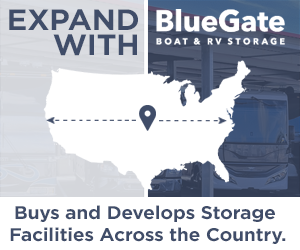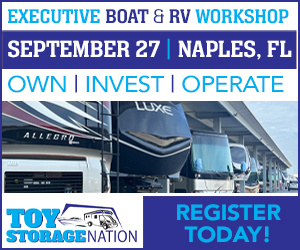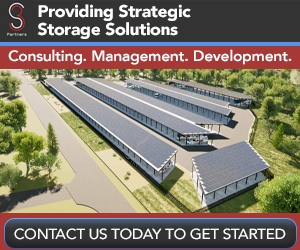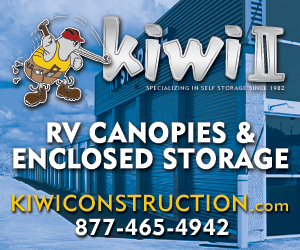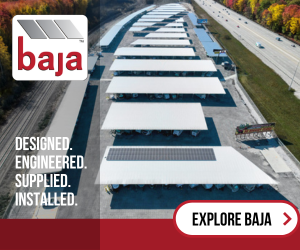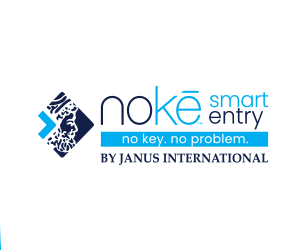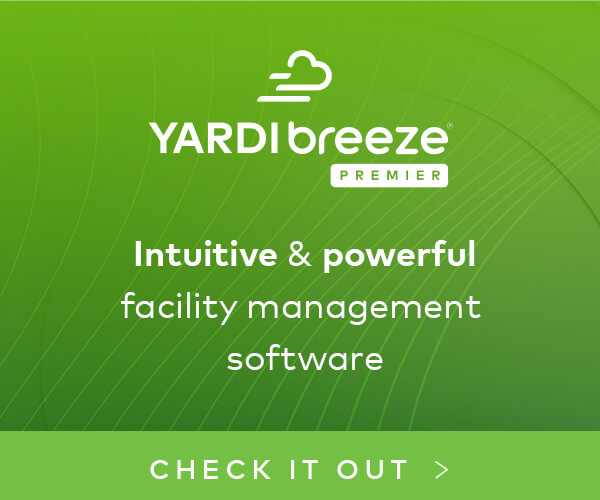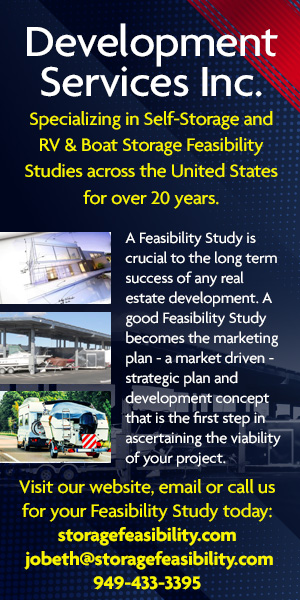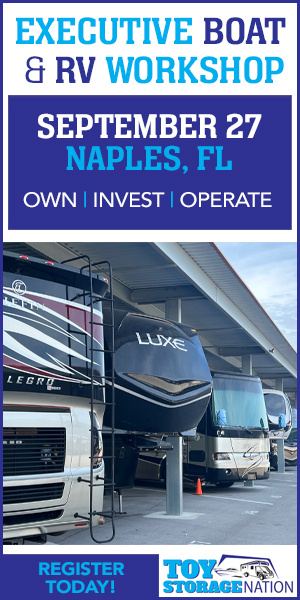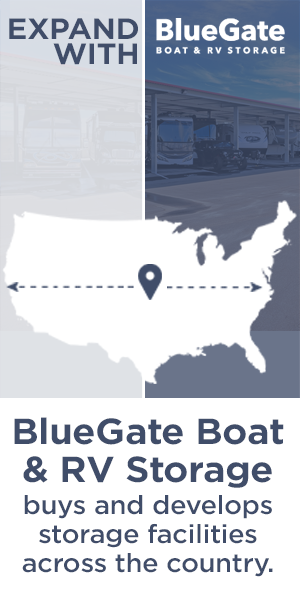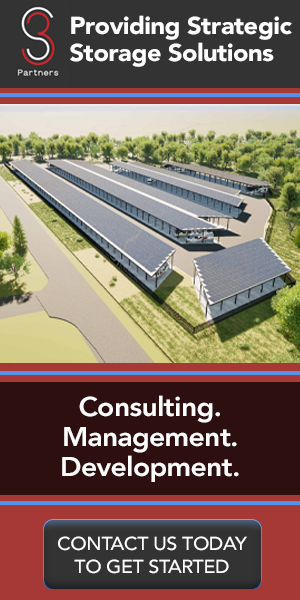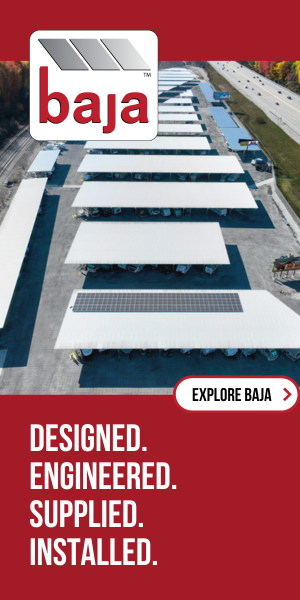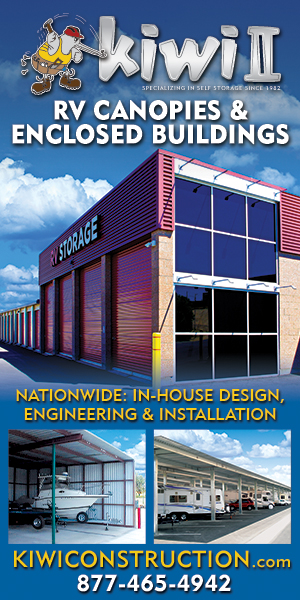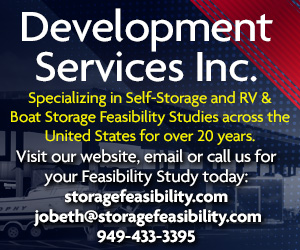By Jeremiah Boucher
Investing in a self-storage facility can be a lucrative venture, but like all real estate investments, it requires thorough due diligence. Before diving into such a commitment, it’s essential to understand the various factors that can influence the success and profitability of a self-storage, whether it’s traditional facility or an RV and boat storage facility.
Here are the top seven things to watch out for during your due diligence process, and a quick checklist of the most important factors for each.
#1 Location, Location, Location
Market Analysis: Understand the local market demand. Is there a growing need for storage solutions in the area? Look at population growth, urbanization trends and local economic factors.
Competition: Identify other storage facilities in the vicinity. How do their rates, occupancy levels, and amenities compare?
Accessibility: Ensure the facility is easily accessible from main roads and highways. Check for any planned infrastructure changes that might affect access in the future.
#2 Physical Inspection of the Property
Condition: Conduct a thorough inspection of the facility to identify any structural issues, water leaks, or potential maintenance concerns.
Security: Examine the security measures in place, including surveillance cameras, access controls, and perimeter fencing.
Expansion Potential: If you’re considering future expansion, check the available land or space and local zoning regulations.
#3 Financial Analysis
Revenue Streams: Beyond storage unit rentals, identify other potential revenue sources, such as retail sales (locks, boxes) or truck rentals.
Expense Review: Scrutinize the facility’s historical operating expenses. Look for any anomalies or areas where costs can be reduced.
Occupancy Rates: Review historical occupancy rates. Consistently low rates might indicate an oversaturated market or operational issues.
#4 Legal and Environmental Concerns
Title Search: Ensure there are no liens or encumbrances on the property.
Environmental Assessments: Especially if the facility is older, consider conducting an environmental assessment to identify potential contamination or other environmental risks.
Zoning and Land Use: Verify that the property’s zoning allows for its current use and any planned expansions or changes.
#5 Operational Assessment
Management: If the facility has on-site management, evaluate their performance and consider whether you’ll retain them.
Software and Technology: Review the facility’s management software, security systems and other technology. Are upgrades needed?
Marketing and Online Presence: Assess the facility’s online reviews, website quality, and overall online presence.
#6 Customer Contracts and Relationships
Rental Agreements: Review existing rental agreements. Are there any unfavorable terms or long-term contracts at below-market rates?
Customer History: Understand the customer base. Is there a high turnover, or do customers tend to rent long-term?
Deposits and Payments: Ensure that security deposits are accounted for and that there are no significant outstanding payments.
#7 Growth Potential and Exit Strategy
Market Evolution: Consider how the local market might evolve. Are there significant developments planned that could increase demand?
Facility Upgrades: Identify opportunities to add value to the facility, such as adding climate-controlled units or enhancing security features.
Exit Strategy: Even before buying, think about your long-term strategy. How easy will it be to sell the facility if needed? What are potential future valuations?
Conclusion
Investing in a self-storage facility can offer significant returns, but it’s crucial to approach the process with a meticulous eye. By focusing on these seven areas during your due diligence, you can mitigate risks and position yourself for success.
Jeremiah Boucher, a self-storage industry expert, has rapidly built an impressive 1.5 million square foot portfolio consisting of 61 properties in just seven years. Specializing in suburban and exurban properties, he has successfully navigated the market by purchasing directly from original mom-and-pop owners. He provides valuable insights, lessons learned, and strategies for finding and financing deals, providing invaluable guidance for those interested in exploring the lucrative self-storage sector.
Kick Start Your RV and Boat Storage Success
The nation’s biggest RV and boat storage workshop returns to Las Vegas, April 5, 2024. TSN’s “Best Practices for Executive RV & Boat Storage Facilities Workshop” is designed to give developers, operators and investors the knowledge, network and inspiration needed to supersede their expectations for success in this soaring industry.
Included on the agenda is a vital presentation by Jo Beth White of Development Services Inc., who will uncover the following:
- The where, when, and why for location selection
- Difference between destination or site-specific facility
- Types of facilities and amenities











